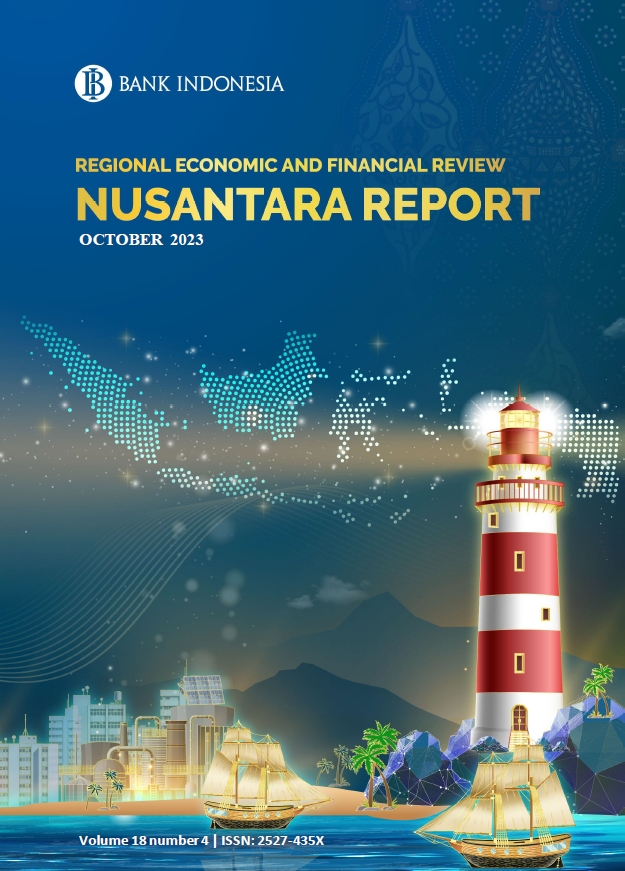
Economic performance in numerous regions in the third quarter of 2023 is projected to remain solid, driven by sustained private consumption and a notable uptick in investment. Various leading indicators signaling regional economic performance have remained consistently stable. Private consumption, including consumption by the younger generation, is expected to remain solid in line with persistently high consumer confidence, which is supported by accumulated excess savings in most regions amid normalising demand after the recent national religious holidays (HBKN) and long school holidays. Meanwhile, regional investment is predicted to increase, particularly building investment in the Java, Sumatra and Sulampua regions, in line with the ongoing completion of national strategic projects (PSN) and the new capital city (IKN) in Kalimantan. On the other hand, subdued non-oil and gas exports are anticipated, given lower exports of natural resources, particularly in the Kalimantan and Sumatra regions, caused by weak demand from Indonesia's main trading partners, especially China. However, potential demand from other trading partner countries is still maintained. With this background, the forecast for national economic growth in 2023 remains within the range of 4.5% to 5.3%.
The national Consumer Price Index (CPI) inflation recorded at 2.28% (yoy) in the third quarter of 2023, marking a decrease from 3.52% (yoy) in the second quarter of the same year. This sustained decline has kept headline inflation within the targeted national range of 3.0%±1% for 2023. There was a spatially widespread moderation of inflationary pressures during the reporting period. This was primarily propelled by the stability of core inflation and administered prices (AP) aligned with controlled demand, steady inflation expectations, and the influence of subsidized fuel price adjustments made in September 2022. Meanwhile, volatile food (VF) inflation increased, primarily in terms of the composite CPI inflation for cities in the regions of Sumatra, Balinusra and Java, edged upwards by lower supply of food commodities due to intertemporal supply continuity imbalances and weather factors. Bank Indonesia, in collaboration with both central and regional governments, alongside strategic partners within the Central and Regional Inflation Control Teams (TPIP and TPID), remains dedicated to bolstering the National Movement for Food Inflation Control (GNPIP) across all regions to effectively manage VF inflation. Looking ahead, Bank Indonesia is confident inflation will remain manageable and within the 3.0%±1% target corridor for the remainder of 2023.
This edition of the Nusantara Report specifically raises the strategic issue of “Optimising Post-Pandemic Opportunities through Quality Tourism for Sustainable Growth". This is a critical issue to explore in line with structural efforts to accelerate the economic recovery amid global economic challenges. The tourism outlook must be improved by optimising the post-pandemic reopening to international travellers, while increasing domestic tourist activity. To that end, strategies for improving tourism performance must be strengthened and focused on boosting the number of inbound international travellers and the movement of domestic travellers, as well as developing travel destinations based on quality tourism and increasing inclusivity, which includes developing creative entrepreneurship in the travel destinations.

